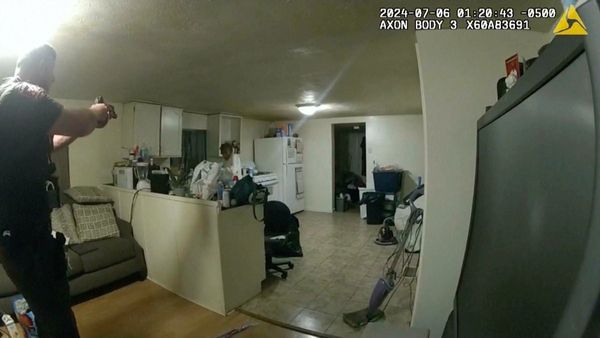
Australia’s prime minister, Scott Morrison, has declared a laser incident involving a Royal Australian Air Force aircraft last week is an “act of intimidation” by China.
Australia’s defence department reported a laser emanating from a People’s Liberation Army Navy vessel illuminated a P-8A Poseidon surveillance aircraft last Thursday when the Chinese ship was sailing east through the Arafura sea.
On Sunday, the prime minister characterised the episode as “a reckless and irresponsible act that should not have occurred”. Thursday’s incident in waters to the north of Australia followed days of domestic political contention about national security.
Morrison said Australia would be “making our views very clear” to the Chinese government through defence and diplomatic channels. Morrison said China needed to provide an explanation “as to why a military vessel in Australia’s exclusive economic zone would undertake such an act – such a dangerous act”.
“I can see it no other way than an act of intimidation, one that was unprovoked, unwarranted,” Morrison told reporters on Sunday. “Australia will never accept such acts of intimidation.”
With a federal election looming, Morrison is attempting to paint his political opponents as being weak on national security, and has declared the authoritarian regime in Beijing wants Labor to replace the Coalition in the coming contest.
The strident nature of the Coalition’s partisan attack prompted the current director-general of the Australian Security Intelligence Organisation, Mike Burgess, to observe publicly that the weaponisation of national security was “not helpful to us”.
A former Asio chief, Dennis Richardson, backed the observation by Burgess, and went further. Richardson, who was appointed to run Australia’s intelligence agency in the Howard era, argued last week the Morrison government was serving China’s interests, not Australia’s, by politicising national security and “seeking to create the perception of a difference [between the major parties] when none in practise exists”.
The public pushback by Australia’s national security establishment is highly unusual.
But thus far Morrison and the defence minister, Peter Dutton, have ignored the warnings. Persisting with his political framing, Morrison declared on Sunday the Coalition had always “stood up” to acts of aggression by China.
“What I can tell you is the way Australia stands up to coercion, bullying, and intimidation and threats – that is what my government has been doing,” the prime minister said.
“You’ve got to take a strong stance on these issues. It’s not just about what you say, it’s about what you do, and what our government has been doing is protecting Australia’s national interest and protecting us from such threats and intimidation.”
Morrison said the laser incident “highlights why, as a government, we have made this such a significant issue”. He said the Coalition had “demonstrated our credentials on national security”.
The prime minister said the Coalition had increased funding for defence and intelligence gathering, and “did not abandon our borders as Labor did”.
He said the laser incident strengthened his “resolve” to boost Australia’s resilience. Morrison said the Coalition would not be “taking an appeasement path” when it came to China’s militarisation in the region.
The Labor leader, Anthony Albanese, characterised China’s actions as an “outrageous act of aggression” and “a reckless act”.
“I condemn it,” he said.
The shadow foreign minister, Penny Wong, said: “These are not the actions of a responsible actor. We expect the government to convey Australia’s strong bipartisan condemnation to Beijing.”
The shadow treasurer, Jim Chalmers, told the ABC on Sunday the episode was “a really concerning and really dangerous and reckless incident” that should be condemned “in the strongest possible terms – as the prime minister has”.
But Chalmers added: “I don’t think what we’ve seen during the week though has strengthened our national security, I think it’s undermined it”.
“At a time when we need a prime minister to be strong and calm and rational, instead we’ve had a prime minister who has been panicked and political and desperate. What we really need here, is we need unity … because if we are divided, then that risks our national security and it makes Australians less safe rather than more safe.”
In a statement Australia’s defence department said incidents like Thursday’s “have the potential to endanger lives”. The department strongly condemned the “unprofessional and unsafe military conduct”.
The Chinese embassy in Canberra has been contacted for comment.







